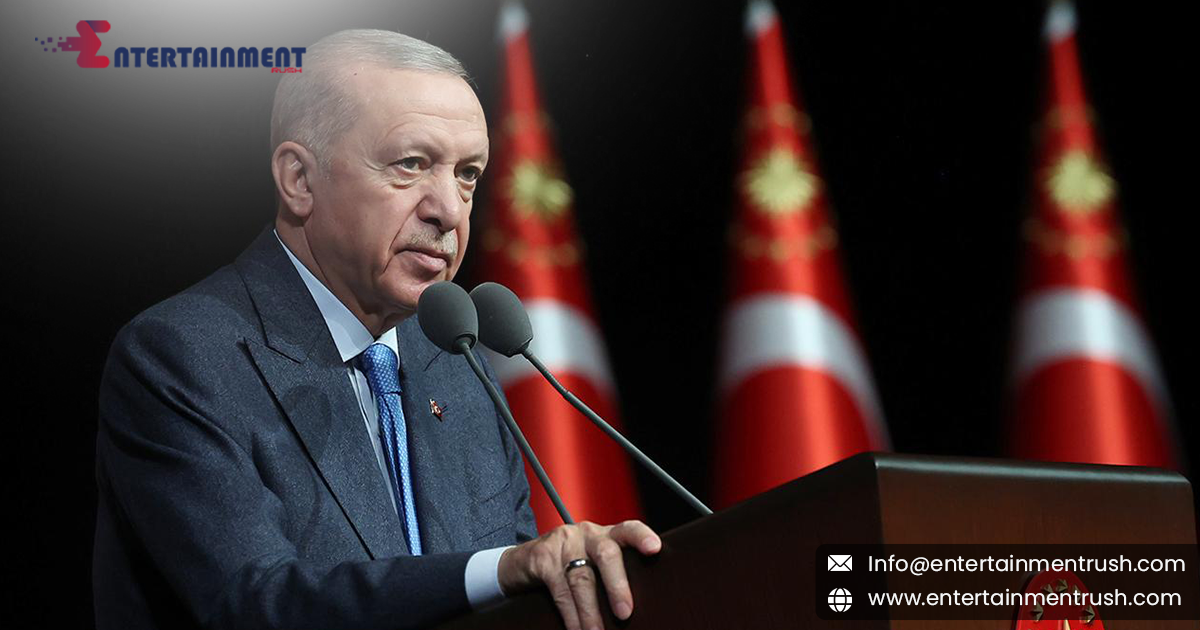The political landscape was shaken to its core in 2024 when news broke of an assassination attempt on former U.S. President Donald Trump. This alarming incident sent shockwaves not only through the United States but also across the globe, drawing widespread condemnation and sparking intense debates about the state of democracy and political violence. Among the international voices that emerged in the wake of the attempt, the Turkish President’s response stood out. He vehemently condemned the attack, calling it a direct assault on the principles of democracy and the rule of law, emphasizing the global implications of such acts of violence.
The Turkish President’s Call to Action
In a passionate address, the Turkish President highlighted the gravity of the situation, stressing that an attack on a former leader of a democratic nation transcends national borders and strikes at the very heart of democratic governance worldwide. He underscored the importance of unity among nations in condemning such actions and protecting democratic institutions. The Turkish leader’s remarks were not merely a show of solidarity with the United States but a call to action for all democratic nations to recognize the shared threat posed by political violence and to collaborate in safeguarding democratic principles.
Broader Challenges Facing Democracies
The Turkish President’s condemnation also brought to light the broader challenges facing democracies around the world. In recent years, political violence and attempts to undermine democratic processes have become alarmingly frequent, raising concerns about the resilience of democratic systems. The President’s statement served as a reminder of the fragility of democracy and the need for constant vigilance and reinforcement of democratic norms and values. He called for stronger international cooperation and dialogue to address these issues, advocating for a collective effort to protect democracy from internal and external threats.
Interconnectedness of Global Politics
Furthermore, the Turkish President’s response highlighted the interconnectedness of global politics. The attempted assassination of a former U.S. president is not an isolated event but part of a broader trend of political instability that can have far-reaching consequences. The Turkish leader pointed out that such incidents can inspire similar actions elsewhere, creating a ripple effect that undermines political stability across the globe. His call for a unified stance against political violence resonated with leaders and citizens alike, emphasizing the importance of a concerted effort to uphold democratic values.
The Role of Media and Public Discourse
In his speech, the Turkish President also addressed the role of media and public discourse in shaping the political climate. He urged the media to exercise responsibility in their reporting and to avoid sensationalism that could exacerbate tensions. He stressed the need for a balanced and factual portrayal of events, which is crucial in maintaining public trust and preventing the spread of misinformation. His remarks underscored the media’s significant influence on public perception and the critical role it plays in either fueling or calming political unrest.
A Call for International Solidarity
The Turkish President’s condemnation of the assassination attempt on Donald Trump as an attack on democracy was a poignant reminder of the universal values that underpin democratic societies. His call for international solidarity and cooperation highlighted the collective responsibility of nations to protect and promote democracy. In a time of increasing political polarization and violence, his message served as a beacon of hope and a call to action for democratic nations to come together in defense of their shared principles.
The Enduring Importance of Democracy
As the world continues to grapple with political challenges, the Turkish President’s words remain a powerful testament to the enduring importance of democracy and the need for its constant protection. His condemnation of the assassination attempt was not just a statement of support for the United States but a reaffirmation of the global commitment to democratic governance. It underscored the necessity for vigilance, cooperation, and a steadfast dedication to the principles that define democratic societies. In the face of such threats, the unity and resolve of the international community are crucial in ensuring the continued resilience and prosperity of democratic nations.
